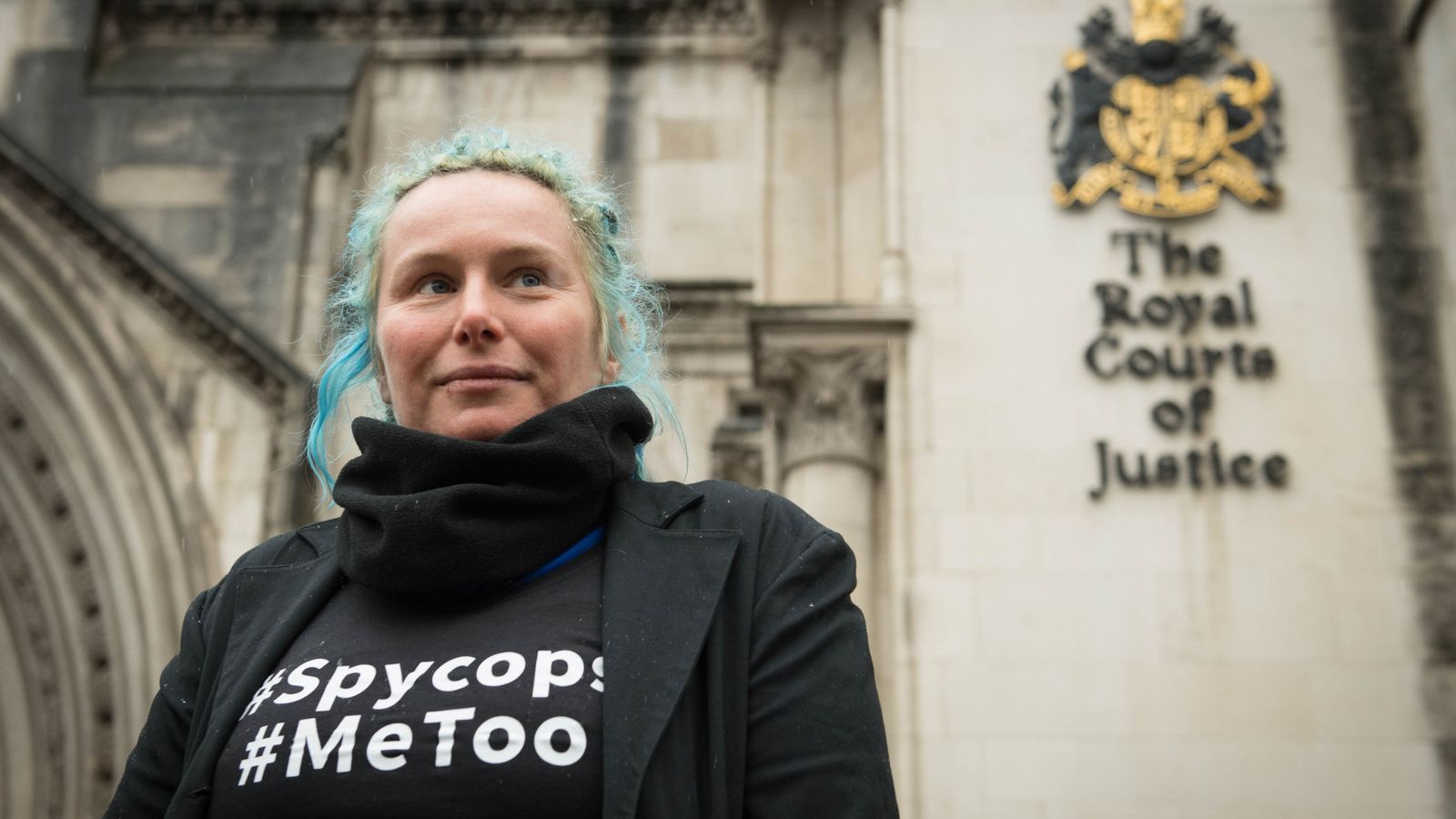An environmental activist who was deceived into a relationship with an undercover officer has won a tribunal case against the Metropolitan Police for breaching her human rights.
Kate Wilson, 41, began a relationship with Mark Stone shortly after first meeting him in 2003.
They had a “whirlwind romance” for over a year before they split amicably in 2005, when she moved to Spain.
But in 2010, Ms Wilson discovered he was a married police officer called Mark Kennedy, who had been sent to spy on activists as part of the Met’s National Public Order Intelligence Unit (NPIOU).
She brought legal action against the police force and the National Police Chiefs Council (NPCC) at the Investigatory Powers Tribunal (IPT) for breaches of her right to freedom from inhuman and degrading treatment, her right to privacy and right to freedom of expression.
The Met Police and NPCC accepted Kennedy’s actions amounted to a breach of those rights, but they denied that other officers in the force – apart from Kennedy and his cover officer – knew or suspected Ms Wilson was in a sexual relationship with Kennedy.
However, in a ruling on Thursday, the IPT found the Met’s claims that undercover officers (UCOs) knew sexual relationships were banned were “materially undermined by the sheer frequency with which [Kennedy] (and other UCOs) did conduct sexual relationships without either questions being asked or action being taken by senior officers”.
‘We will not give up on him’ – Police appeal over ‘cold’ case of unidentified boy whose torso was found in River Thames 20 years ago
Paul Maurice death: Sean Maurice appears at Old Bailey accused of killing his father
Met Police knife crime reduction trial yields just two court orders in first 10 weeks
The tribunal said: “We are driven to the conclusion that either senior officers were quite extraordinarily naive, totally unquestioning or chose to turn a blind eye to conduct which was, certainly in the case of [Kennedy], useful to the operation.”
It also found that the Met and NPCC’s failure to guard against the risk of UCOs entering into sexual relationships with women amounted to unlawful discrimination against women.
Kennedy had sexual relationships with as many as 10 other women during his deployment.
This included one with a woman known only as “Lisa” which lasted for six years before she discovered a passport in his real name.
He also was one of half a dozen undercover officers from the NPIOU or its “sister unit”, the Special Demonstration Squad (SDS), who Ms Wilson came into contact with between 1998 and 2010.
The tribunal concluded: “This is not just a case about a renegade police officer who took advantage of his undercover deployment to indulge his sexual proclivities, serious though this aspect of the case unquestionably is.
“Our findings that the authorisations under [the Regulation of Investigatory Powers Act 2000] were fatally flawed and the undercover operation could not be justified as ‘necessary in a democratic society’ … reveal disturbing and lamentable failings at the most fundamental levels.”
In a statement, Ms Wilson said: “The events in my case happened years ago, however the failure of the police to protect women from sexual predators within their own ranks, and police attempts to criminalise protesters, are both still very live issues today.”
She added: “We need to tackle the misogyny and institutional sexism of the police, and there needs to be a fundamental rethink of the powers they are given for the policing of demonstrations and the surveillance of those who take part.”
A statement issued by the Metropolitan Police and NPCC said: “We accept and recognise the gravity of all of the breaches of Ms Wilson’s human rights as found by the Tribunal, and the Met and NPCC unreservedly apologise to Ms Wilson for the damage caused, and the hurt she has suffered from the deployment of these undercover officers.”






















